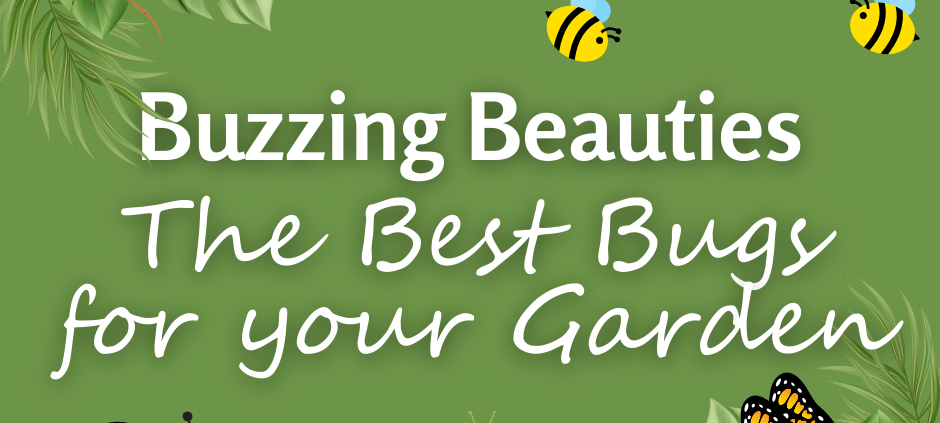Buzzing Beauties: The Best Bugs for Your Garden
At Imagine Early Education and Childcare, we’re passionate about fostering a love for nature and the environment in young minds. One of the most magical ways to connect children with the natural world is through gardening. Not only does gardening teach valuable lessons about responsibility and patience, but it also provides a habitat for a diverse array of insects. In this blog, we’ll explore some of the best bugs to invite into your garden and the important roles they play in maintaining a healthy ecosystem.
- Ladybugs (Ladybirds): These charming red-and-black beetles are not only adorable to look at but also incredibly beneficial for your garden. Ladybugs are voracious predators of aphids, mites, and other garden pests, making them a natural form of pest control. By attracting ladybugs to your garden, you can keep pest populations in check and promote a balanced ecosystem.
- Bees: As pollinators, bees play a crucial role in the reproduction of many flowering plants, including fruits, vegetables, and ornamental flowers. By attracting bees to your garden, you can increase fruit and vegetable yields and promote biodiversity. Planting a variety of flowering plants, especially native species, will help attract bees and provide them with the nectar and pollen they need to thrive.
- Butterflies: Butterflies are not only beautiful to behold but also important pollinators in the garden. Planting nectar-rich flowers such as butterfly bush, milkweed, and coneflower will attract butterflies to your garden and provide them with essential food sources. Creating a butterfly-friendly habitat with sheltered areas for resting and laying eggs will encourage these delicate creatures to visit your garden regularly.
- Praying Mantis: Known as the “gardener’s friend,” the praying mantis is a formidable predator of garden pests such as aphids, caterpillars, and beetles. These stealthy insects are skilled hunters, using their powerful forelegs to catch and devour their prey. Encouraging praying mantises to take up residence in your garden can help keep pest populations under control and promote a healthy balance of insect life.
- Ground Beetles: Often overlooked but incredibly beneficial, ground beetles are natural predators of slugs, snails, and other garden pests. These nocturnal hunters patrol the soil surface, preying on insect larvae and eggs that can damage plants. Creating habitat features such as mulch piles, leaf litter, and rock piles will attract ground beetles to your garden and provide them with shelter and food.
By welcoming these beneficial bugs into your garden, you can create a thriving ecosystem that supports healthy plant growth and biodiversity. Encourage children to observe and learn about these fascinating creatures and instill in them a sense of stewardship for the natural world. Together, we can cultivate a love for gardening and environmental conservation that will last a lifetime.



